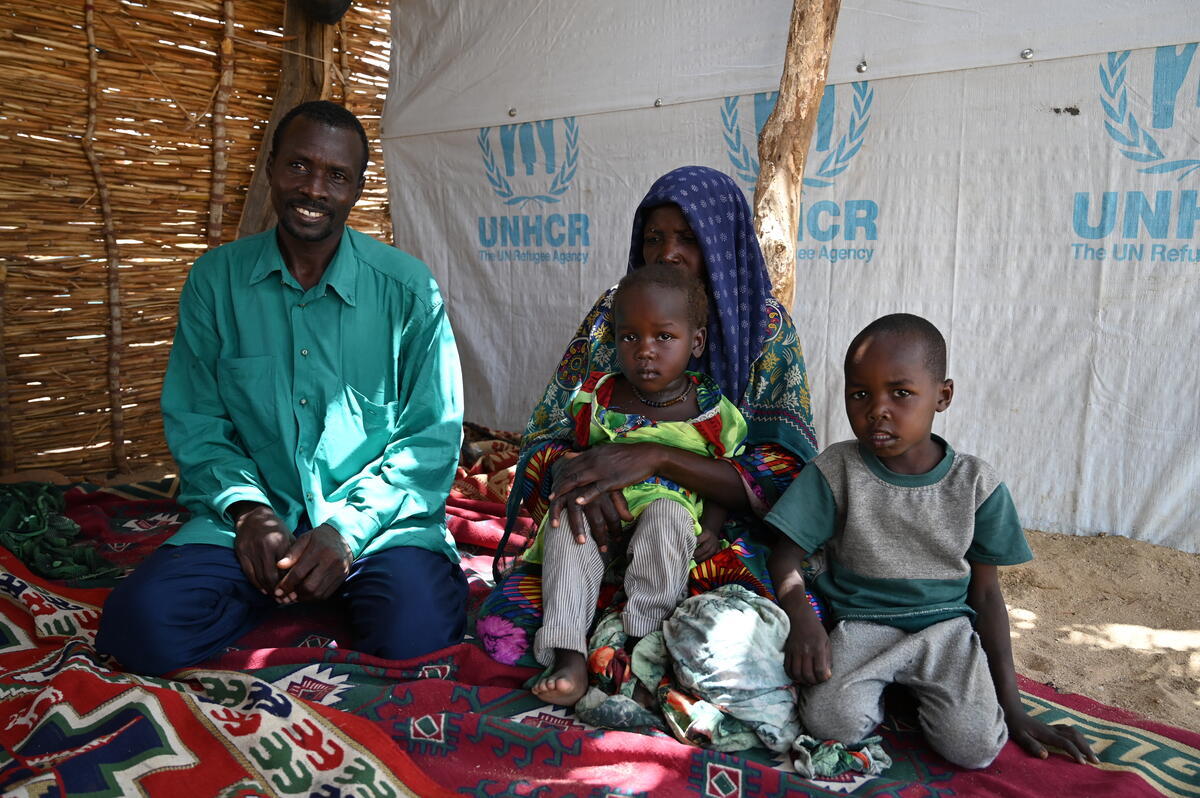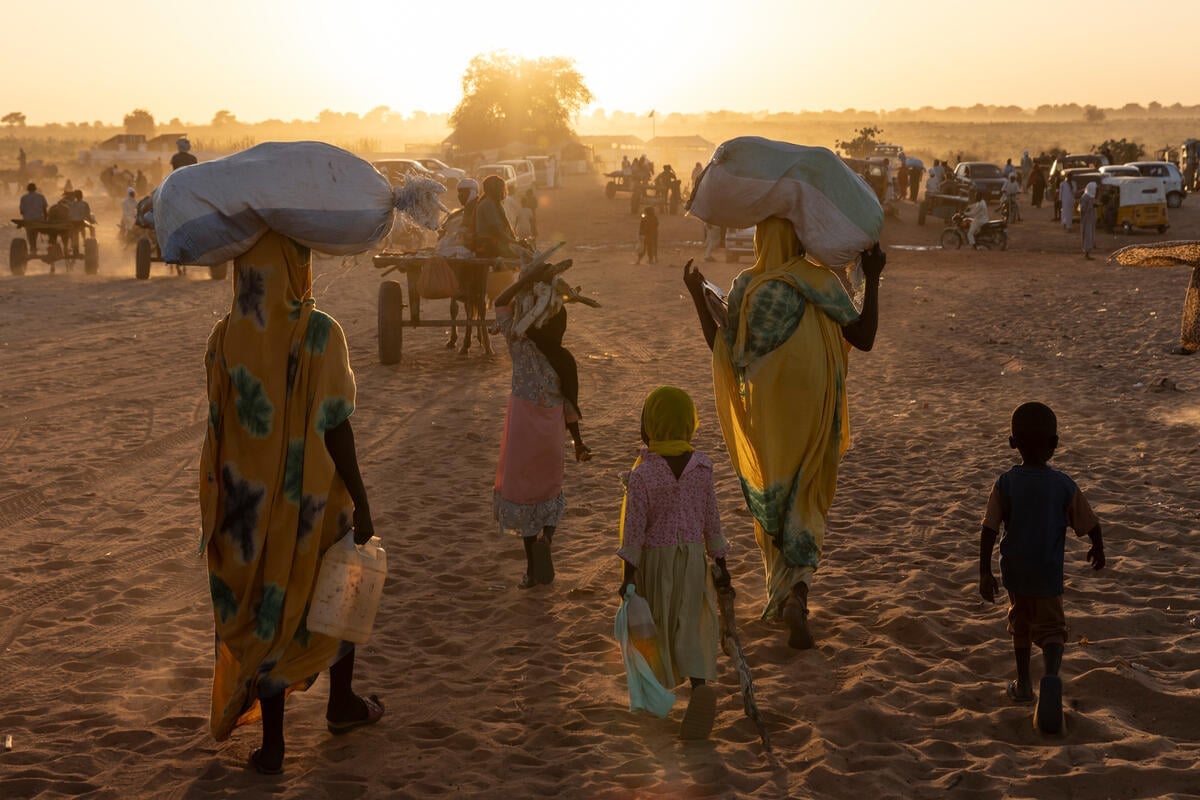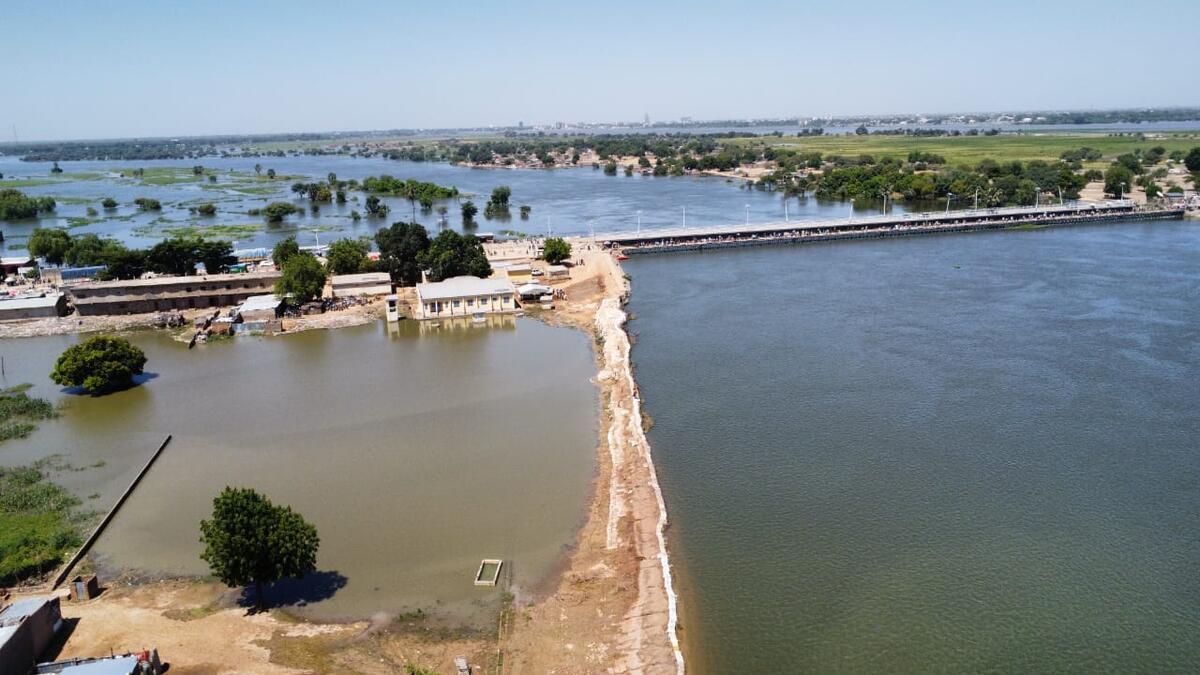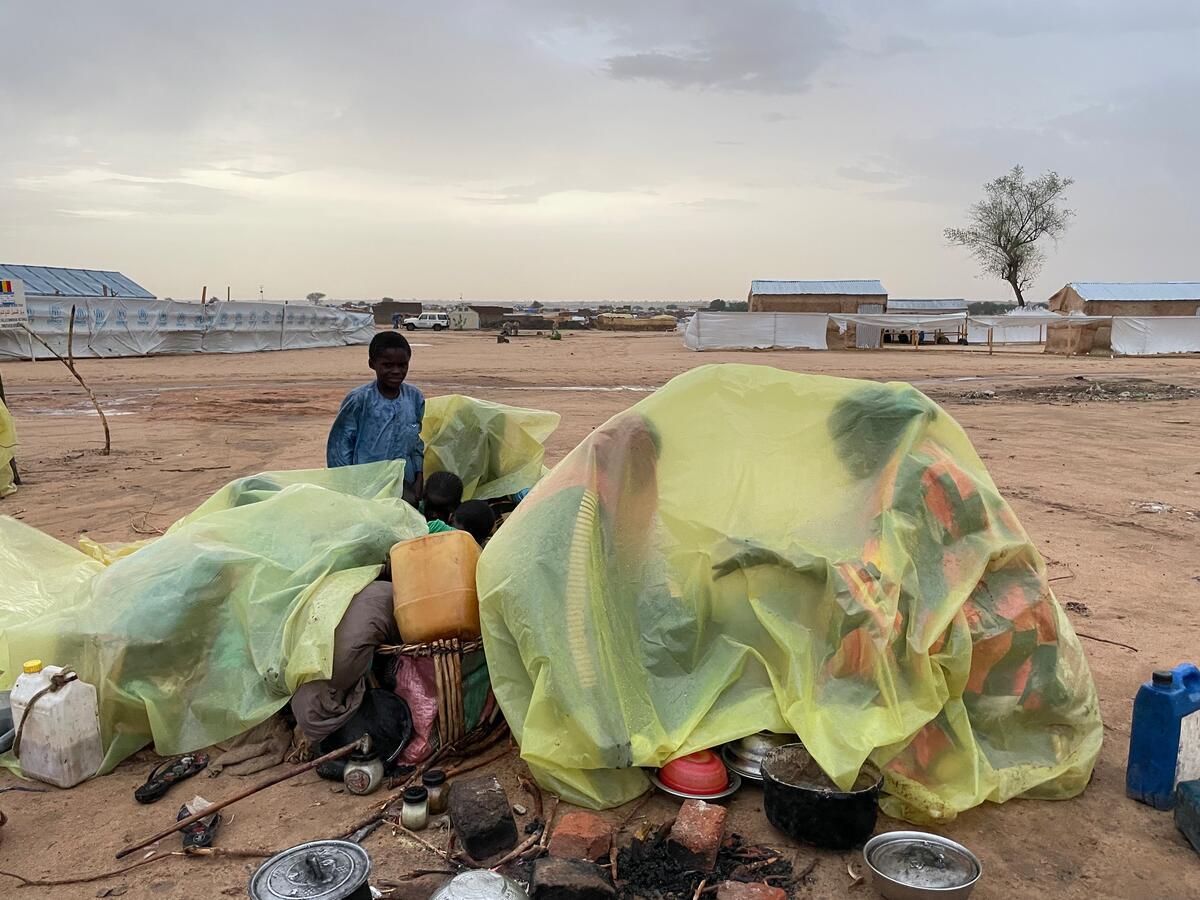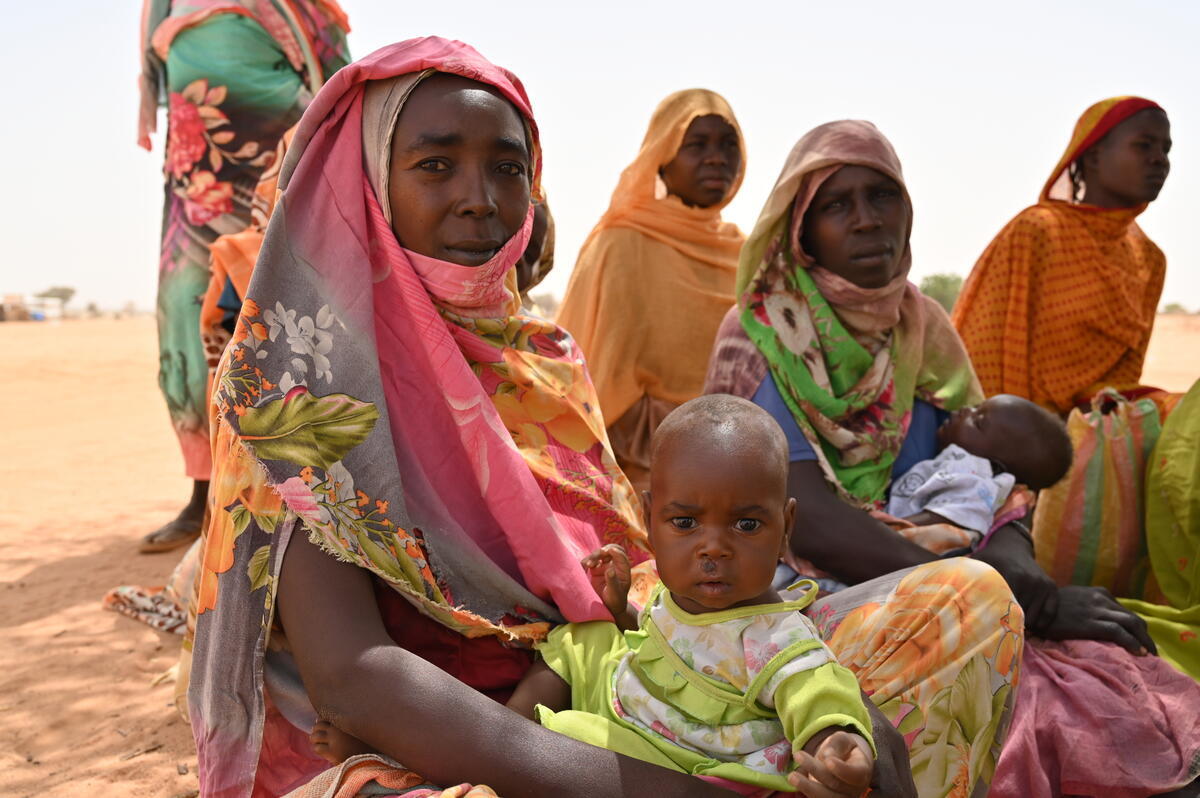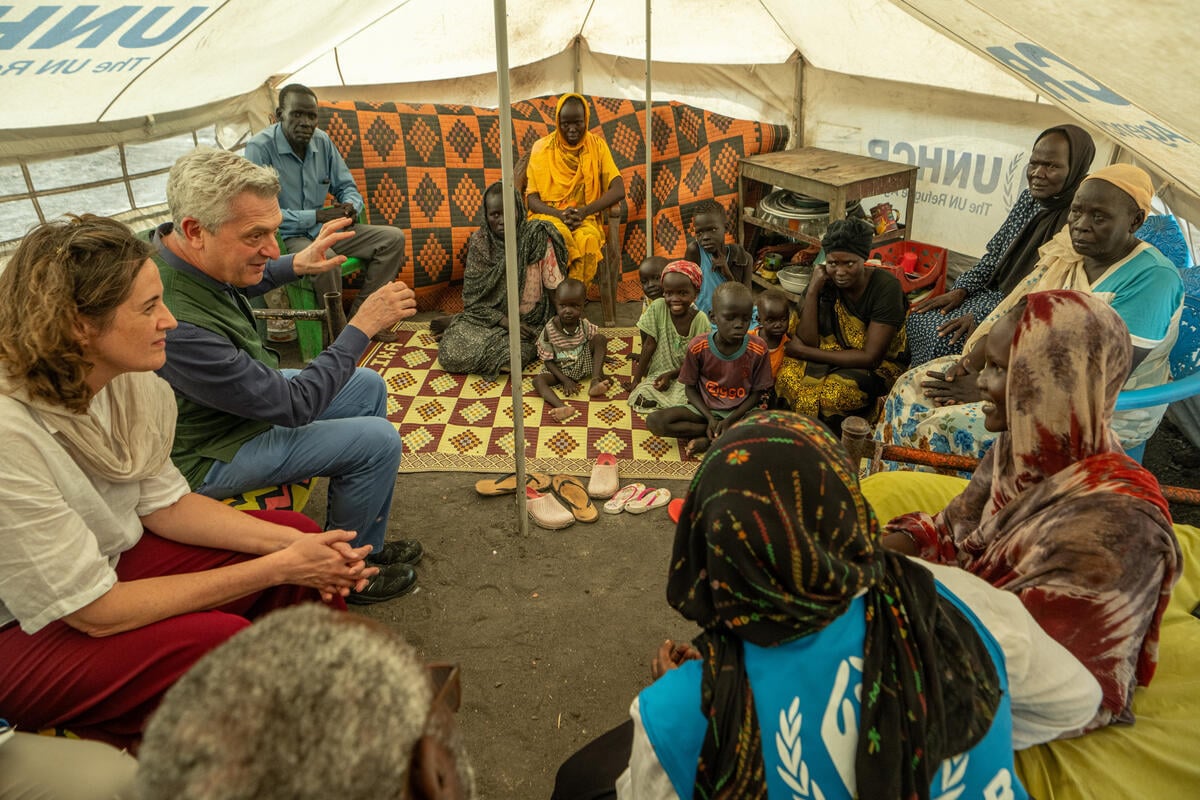Chad: Attacks bring new wave of displacement in south-east
Chad: Attacks bring new wave of displacement in south-east
UNHCR and its partners are dealing with a new wave of displacement in south-eastern Chad following a deadly attack on Saturday morning in the villages of Tiero and Marena, about 45 km east of Koukou in south-eastern Chad. We do not know yet how many people have been displaced in total. But preliminary reports by UNHCR and other humanitarian agencies indicate that at least 2,000 people have arrived at the Goz Amir refugee camp near Koukou. Goz Amir camp is home to more than 19,000 Sudanese refugees from the neighbouring Darfur region.
Early reports indicate at least 70 wounded; 34 of them were seriously wounded. They were evacuated to the Goz Beida hospital an hour away from Goz Amir by road. Many of the wounded were collected along the roadside by humanitarian vehicles.
Chadian military authorities have reported at least 65 dead in the village of Tiero. The bodies are decaying rapidly because of the heat, and they will be buried in a common grave today to avoid the possible outbreak of disease. Figures for the village of Marena are expected later today. The death toll is expected to rise, as reports have been received of corpses along roadsides.
The newly displaced people are being directed to the Aradif displacement site, located just beside the Goz Amir refugee camp, where they are receiving assistance including food and other aid supplies. Although water is already available at the site, capacity is being augmented by the provision of water bladders. Emergency structures have been erected to shelter the most vulnerable. One NGO reported that the nutritional situation was cause for concern, as many new arrivals had spent a couple of days without eating.
Testimony gathered thus far indicates that the attack was led by "Janjaweed" militia who were repelled by local self-defence militias and national army soldiers following several hours of combat. Refugees in the Goz Amir camp and residents of Koukou village could hear heavy weaponry and explosions during the fighting. The situation was reported to have been brought under control by Saturday afternoon, with the alleged Janjaweed militias fleeing in the direction of the Sudanese border.
According to testimony of survivors interviewed by UNHCR and partner agencies, their villages were surrounded by men on horseback and camelback, as well as many motor vehicles, some of which were equipped with heavy weaponry. The assailants began to fire at random into the villages, and then began pursuing the fleeing population, robbing women of their possessions and shooting the men, many of whom are feared dead. The majority of the population arriving at Goz Amir refugee camp is comprised of women and children. They are a mix of local populations of Tiero and Marena, as well as populations who had been displaced by prior hostilities in the region. They have told us that many people were still hiding in the bush, fearful that their assailants might still be in the area.
There are 120,000 internally displaced people in eastern Chad. The region also hosts 230,000 Sudanese refugees, including 220,000 in 12 UNHCR-run-camps. Chad is also hosting some 46,000 refugees from the Central African Republic in the south.


